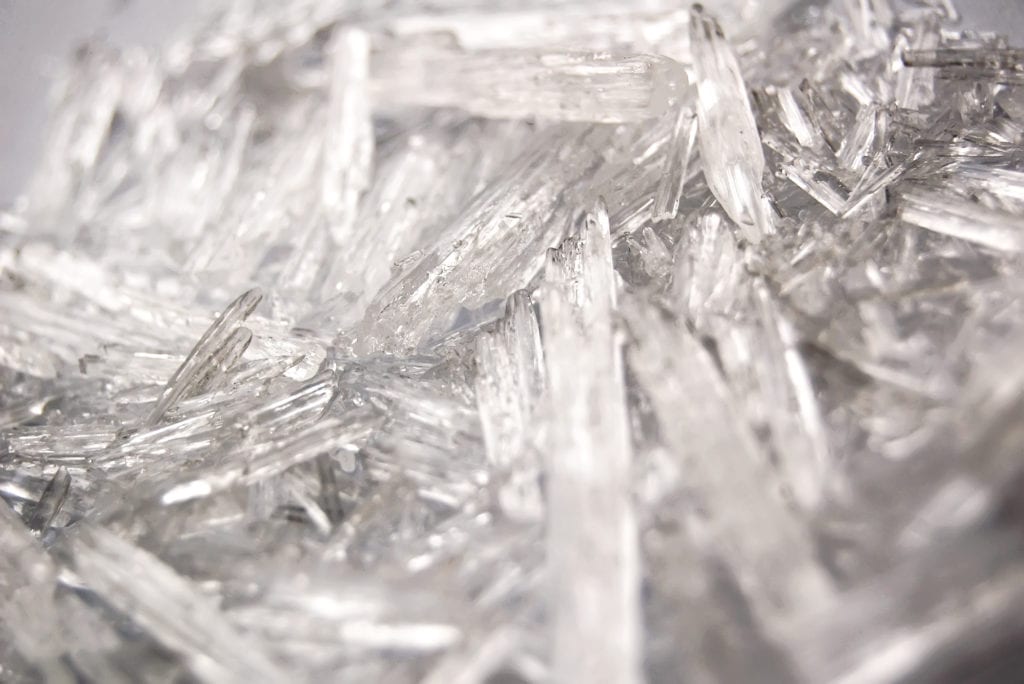U.S. FDA Publishes Proposed Ban on Menthol as a Flavor
- Flavors News This Week
- April 28, 2022
- 10 minutes read

Credit: Adobe

By Timothy S. Donahue
The ban on menthol cigarettes is closer to becoming a reality. After years of discussion, the U.S. Food and Drug Administration has instituted a proposed rule to place a ban on menthol combustible cigarettes and flavored cigars. Whether the menthol ban will also cover next-generation tobacco products, such as e-cigarettes, has not yet been clarified.
“The authority to adopt tobacco product standards is one of the most powerful tools Congress gave the FDA and the actions we are proposing can help significantly reduce youth initiation and increase the chances that current smokers quit. It is clear that these efforts will help save lives,” said FDA Commissioner Robert M. Califf, M.D. “Through the rulemaking process, there’s an important opportunity for the public to make their voices heard and help shape the FDA’s ongoing efforts to improve public health.”
When finalized, the FDA states that the proposed menthol product standard will:
- reduce the appeal of cigarettes, particularly to youth and young adults, decreasing the likelihood that nonusers who would otherwise experiment with menthol cigarettes would progress to regular smoking; and
- improve the health and reduce the mortality risk of current menthol cigarette smokers by decreasing cigarette consumption and increasing the likelihood of cessation.
The FDA states that the proposed product standards are based on clear science and evidence establishing the addictiveness and harm of the products. Many organizations were quick to condemn the regulatory agency for proposing the rule that is opposed by all major law enforcement, civil rights and criminal justice reform organizations. Opponents of the menthol ban say that evidence clearly shows that banning menthol products will do nothing to reduce combustible cigarette smoking rates but will lead to an increase in people purchasing products on the black market.

“This misguided proposal will have disastrous impacts on public health and public safety. It will do nothing to reduce smoking rates and instead make the United States less safe.” said Tim Andrews, director of Consumer Issues for Americans for Tax Reform (ATR). “It is unfortunate that as violent crime rates rise across the country, the FDA chooses to divert valuable police resources to pursue an unnecessary ban on menthol products.”
Andrews argues that a menthol ban exposes “vulnerable members of minority communities to conflict with law enforcement, and their purchases could also fund sophisticated international criminal syndicates.” According to the U.S. Department of State, illicit tobacco’s links to funding terrorist organizations already present a “serious threat” to national security. “This policy would worsen the problem while also depriving state governments of excise revenue, putting state government programs at risk,” says Andrews.
Richard Marianos, a senior law enforcement consultant who has served more than 27 years at the U.S. Bureau of Alcohol, Tobacco, Firearms and Explosives and who is now a consultant and adjunct lecturer at Georgetown University, says that in many foreign markets, such as Asia, companies are creating products to make mentholated cigarettes, because those types of products are not covered by the rule.
“They are flavor packets you just slide into a pack of cigarettes. You buy your cigarettes, you put that in there and by the time you get home, the whole pack is mentholated. They also have these – it’s like a little Tic Tac box with a round, small, little mint … but what it does is you put it into the filter, shake, crush and now it’s a menthol cigarette,” said Marianos. “Are we eventually going to be asking border protection to now start looking for minty flavor packets or Tic Tac boxes when they have to concentrate on biological and nuclear threats? When you overlook public safety surrounding this matter, you’re creating an unhealthy situation, not just for smokers, but anybody who’s out there.”
Marianos says that a menthol ban will create a greater level of diversion and criminal activity with high-value targets overseas, it’ll bring more organized crime into the United States. It’ll also create a greater market for border countries to begin manufacturing menthol and bring it into the United States.
“There was one investigation in particular, I remember, where the individual said on a wire that once they banned menthol cigarettes in the United States, you can pave the roads in gold because of the boost in sales of black market and DIY menthol cigarettes,” he said. “Prohibition doesn’t work. Your quality of police work goes down; they can’t concentrate on violent crime as much and it creates a greater wedge between themselves and the community.”

Guy Bentley, director of Consumer Freedom Research for the Reason Foundation, said that similar bans have had minimal effects on tobacco consumption in other countries such as Canada and the U.K., adding that a menthol ban is likely to lead to more policing in minority communities, more incarceration, boost black market sales and undermine criminal justice reforms in the U.S.
In an email to Vapor Voice, Bentley explained that a recent study funded by the Norwegian Cancer Society in partnership with the Polish Health Ministry found that in Poland – the EU state with the largest pre-ban menthol share – found “mixed evidence” that the ban is working as intended.
Bentley argues the FDA and Biden administration should apply a harm reduction model, educating the public about safer alternatives to conventional cigarettes and the latest smoking cessation options. Andrews concurs with Bentley, adding that the proposed rulemaking will inevitably lead to further growth of illicit markets, put members of minority communities in danger and divert law enforcement resources away from real crime.
“It ignores best practice expert recommendations on how to reduce smoking rates through proven harm reduction technologies, is a disaster for public health, and will make all Americans less safe,” Andrews said. “If the Biden Administration truly cared about the American people, they would junk this anti-science and genuinely harmful proposal immediately.”
Beginning May 4, 2022, the public can provide comments on these proposed rules, which the FDA will review as it considers future action. The agency also will convene public listening sessions on June 13 and June 15 to expand direct engagement with the public, including affected communities.
The public will have the opportunity to submit either electronic or written comments directly to the dockets on the proposed rules through July 5, 2022. Once all the comments have been reviewed and considered, the FDA will decide whether to issue final product standards.
The FDA also states that it cannot and will not enforce against individual consumers for possession or use of menthol cigarettes or flavored cigars. If the proposed rules are finalized and implemented, FDA enforcement will only address manufacturers, distributors, wholesalers, importers and retailers who violate the rules.

